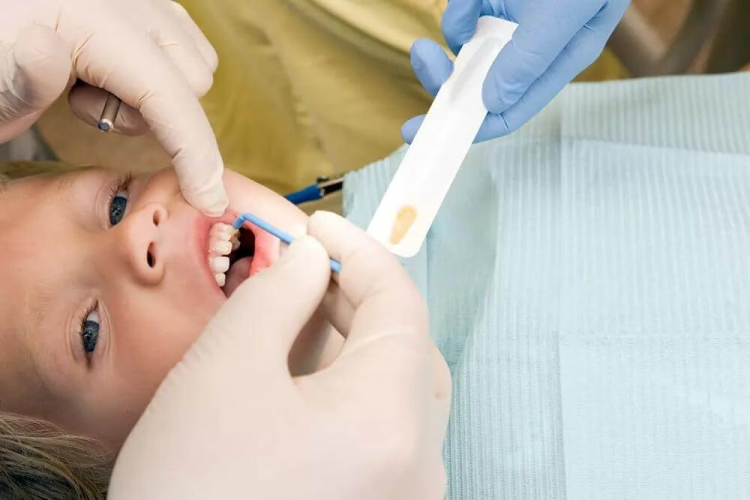Natural fluoride is essential for dental health and cavity prevention. It reverses early decay, strengthens enamel, and shields teeth from germs that produce acid. People first learned that fluoridated water improved oral health in the 1940s. Fluoride gained popularity in dental care in the early 20th century because people had fewer cavities.
What role does Fluoride play?
Enamel remineralization: In order to reverse early tooth decay, remineralization involves restoring lost minerals to tooth enamel. Fluoride is necessary for this process because it strengthens enamel by adhering to weak areas and thwarting bacterial acid assaults. Compared to the price of a dental cap, fluoride is an inexpensive and essential method of maintaining the condition of your teeth.
Stopping dental decay
Fluoride is a particularly effective method of preventing tooth decay because it inhibits the microorganisms that produce acid in the mouth. By lessening these bacteria’s ability to erode tooth enamel, it significantly reduces the incidence of cavities. By adopting this simple and affordable step, people can avoid costly procedures like dental implants, which can be fairly high for replacing lost or severely damaged teeth. By incorporating fluoride into their daily routines, people can maintain better oral health and avoid major dental procedures.
To give teeth further protection, especially for high-risk individuals, dentists may apply professional Fluoride treatment (เคลือบฟลูออไรด์, term in the Thai), such as fluoride varnishes and gels. These treatments offer a concentrated dose of fluoride, stronger than what is present in toothpaste or drinking water. In order to prevent cavities and strengthen weak or developing teeth, fluoride varnishes and gels help to remineralize enamel. These professional treatments are essential for maintaining oral health in people who are more susceptible to decay, such as children or people with dry mouth. No need for costly procedures like implants or crowns.
Function in the dental health of children
Fluoride is necessary for pediatric oral health in order to maintain growing teeth. During the early stages of tooth formation, fluoride fortifies enamel against acid assaults and decay. Strong teeth that are resistant to cavities are developed by this early exposure. For long-term protection, fluoride aids in the remineralization of tooth enamel. Frequent Fluoride treatment for children (เคลือบฟลูออไรด์เด็ก, this is the term in the Thai) can help reduce the likelihood of major dental issues, which will lower the expense of replacing missing teeth.
The controlled addition of fluoride to public water sources with the goal of preventing tooth decay and enhancing dental health is known as water fluoridation. This safe and effective method is supported by major health organizations worldwide, such as the World Health Organization (WHO).To use the right fluoride toothpaste, look for an active fluoride ingredient. Fluoride is essential for daily dental care because it strengthens tooth enamel and guards against cavities.You may ensure long-term oral health by avoiding costly dental procedures like fillings or dental implants by sticking to a regular oral hygiene routine that includes using fluoride toothpaste and mouthwash.
Foods like shellfish, especially fish with bones like sardines, and many types of tea are excellent sources of fluoride. Moreover, trace amounts of fluoride may be present in some fruits and vegetables grown in fluoride-rich soil.Including these food sources in your meals will help maintain your overall dental health and reduce your chance of cavities, in addition to routine brushing and professional treatments.

